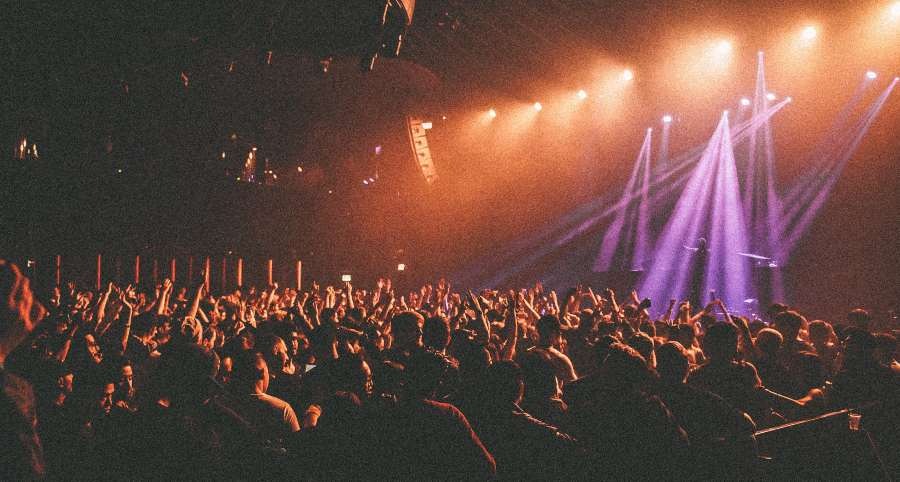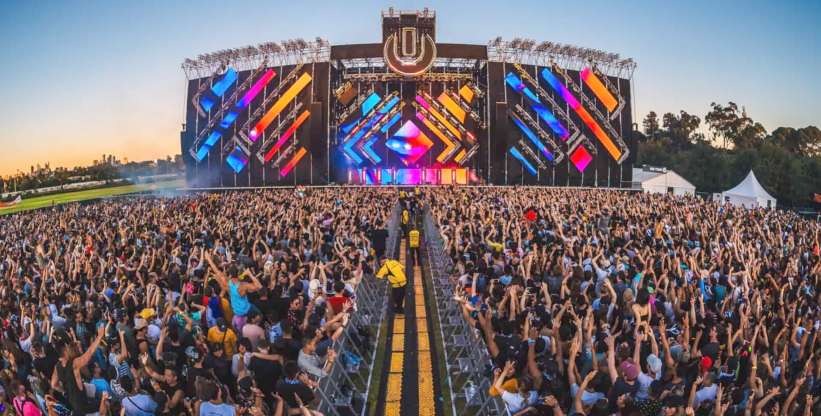The live music industry is a dynamic and changing field with countless chances for budding musicians to present their skills. The live performance scene is important in the global music industry, including concerts, festivals, and small gigs. This blog article seeks to give aspirant artists success techniques in the live music industry, covering anything from developing a career and negotiating the performance circuit to handling funds and contracts.
Achieving long-term success in the live music business requires knowledge of its nuances regardless of experience level as a performer. We’ll review trends, key players, and practical tips to set you apart and flourish. By the end of this post, you’ll have a comprehensive guide to confidently navigating the live music scene.
Let’s set the stage and dive into live music, where passion meets performance, and every note counts.
Understanding the Live Music Industry

The Evolution of the Live Music Industry
Over the years, the live music industry has experienced a major transformation. Our live music consumption has changed from traditional performances in great halls to contemporary music festivals with thousands. Live events in the 20th century mostly occurred in theatres and symphony halls. However, evolving consumer tastes and technology have opened more venues and forms accessible to musicians.
Live streaming, virtual concerts, and pop-up events are common today, providing musicians with fresh approaches to interacting with their fans. Along with improved accessibility, this development has diversified musician income sources. Knowing this historical background enables artists to value and use the present scene.
Understanding the sector’s past helps one predict future trends, thereby guiding artists in adaptation and creativity. Keeping current with both past and present events can help you strategically position yourself for success in the live music industry.
Key Players in the Live Music Industry
The live music industry is shaped by several major stakeholders, each of which is essential for an artist’s career. The interested parties are promoters, booking agents, venue managers, and record companies. Event planners and guarantee of substantial crowd attractability depend on promoters. They negotiate performance contracts and regularly interact with booking representatives representing the musicians.
Venue managers guarantee that everything goes according to plan on the day of the event by supervising the logistics of presenting live events. Although historically oriented on recorded music, record companies nevertheless frequently finance live events to advance their musicians. Successfully navigating the business depends on an awareness of the roles and obligations of these influential stakeholders.
Developing close ties with these partners might open doors to more performance opportunities and joint projects. Keeping professional contacts inside the sector and networking can significantly change your career path.
Current Trends in the Live Music Industry
The live music industry is constantly changing and adjusting to new technologies and consumer tastes. Reaching a larger audience with streaming platforms is one present industry trend. These days, musicians may publish their songs to sites like Spotify and Apple Music so that listeners worldwide may find and enjoy them. This has created fresh chances for musicians to interact with fans and get publicity.
Virtual concerts and live streaming have also become rather common. Thanks to technological developments, artists can now stage live events online, reaching audiences who would not be able to attend in person. This increases musicians’ reach and offers fans a singular and immersive experience.
Social media has also become a necessary instrument for musicians to interact with fans and advertise their work. Artists can upload bits of their songs and behind-the-scenes material and communicate personally with their audience on sites like Instagram and TikHub. Social media helps musicians establish a strong online profile and interact with fans more personally.
Building a Successful Live Music Career

Developing Your Unique Sound
Creating a successful live music career starts with having a distinctive sound that distinguishes you. Your sound is your musical personality, reflecting your influences, experiences, and inventiveness. Experimenting with many genres and styles is crucial to discovering which speaks to your audience and yourself.
Working with other musicians will also enable you to improve your technique and find fresh sounds. Recording demos and getting comments from mentors and peers will help you better understand your music’s strengths and areas for development. Remember, authenticity is essential; music that feels real and true to you will connect more profoundly to your audience.
Consistency in your voice helps create a recognizable brand, facilitating fans’ identification and memory of you. Once you have developed your sound, it is imperative to stay faithful to it while allowing for development.
Building a Strong Fan Base
The basis of a good music career is a solid following. Along with showing up for your live events, fans help you reach a larger audience by sharing your music. Engaging with fans and cultivating a devoted following may be much easier on social media sites.
Share updates, behind-the-scenes material, and interactive posts often to communicate routinely with your audience. Respond to messages and comments to show thanks and foster community. Additionally, virtual concerts and live Q&A events increase fan involvement.
Working with other artists and participating in local events will help you get noticed and draw fresh followers. Constant involvement and real connections are the foundation of a great fan base.
Effective Marketing and Promotion Strategies
A good live music industry depends heavily on marketing and promotion. Creating a strong marketing plan increases your visibility and enables you to reach your target market. First, list your special selling propositions and create a gripping brand narrative that is appropriate for your readers.
Share your music and forthcoming gigs on social media. Use aesthetically pleasing materials, such as videos and posters, to grab people’s attention and inspire excitement. Work with music bloggers and influencers to increase your credibility and reach.
Another great instrument for keeping your followers updated and involved is email marketing. Send frequent mailings, including information on specials, tour dates, and fresh releases. Remember to monitor the performance of your marketing initiatives and modify your plans in response.
Navigating the Live Music Performance Circuit

Finding and Booking Gigs
Landing events is one of the most important components of a live music career. First, research local events and venues that fit your music style. Then, make professional pitches to venue managers and promoters with your press package, music samples, and performance record.
Networking with other artists and business executives might also result in gig prospects. Visit neighborhood open mics, jam sessions, and music events to network with possible partners and promoters. Maintaining good contacts inside the sector and developing a strong reputation can help create more performance chances.
You may find and schedule events using online sites like GigSalad and Bandsintown. Regularly update your accounts on these sites to draw possible bookings with your most recent songs, videos, and performance dates.
Preparing for Live Performances
Preparation is key to delivering outstanding live performances. To guarantee tightness and cohesiveness, start by routinely practicing with your band or backing tracks. Concentrate on honing your setlist and song transitions to keep a good flow during your performance.
A good live performance depends heavily on stage presence and crowd interaction. Get used to interacting with the audience and walking boldly on stage. To show your audience your vitality and passion, make eye contact, move your body, and express your facial emotions.
Equally crucial are technical elements such as equipment setup and sound checks. Early arrival at the site will help you do a comprehensive sound check and guarantee that all of your equipment is in operating order. Advanced technical requirements for the venue crew will help prevent any last-minute problems.
Engaging with the Audience
Making unforgettable live presentations depends on involving the audience. First, engage the audience by interacting sincerely, that is, by saying hello and shouting out calls to attention. Tell personal tales or anecdotes connected to your songs to build closer ties with your audience.
Invite audience members to dance, clap, or sing along to foster involvement. Plan interactive parts for your show, like sing-alongs or call-and-response sections. These components foster community and help the viewers to be engaged.
Spend some time meeting and engaging with your fans following your show. Thank you; sign autographs, snap pictures, and document their support. Developing a rapport with your audience improves their whole experience and promotes loyalty.
Managing Finances and Contracts in the Live Music Industry

Understanding Revenue Streams
In the live music industry, financial security depends on knowing and spreading out revenue sources. Among musicians’ main sources of income are performance fees, retail sales, and streaming royalties. Licensing your music for movies, ads, or video games can also bring in a big income bump.
Direct support from fans made possible by crowdfunding sites like Patreon and Kickstarter helps you consistently. To inspire fan support, provide unique materials, early access to future releases, and tailored experiences.
Tracking and controlling your income sources enables you to create plans and make wise financial decisions. Review your revenue sources often and look at fresh prospects to increase your income.
Negotiating Contracts and Agreements
The live music industry revolves mainly around contracts and agreements. Whether negotiating management agreements, recording contracts, or performance deals, you must completely grasp the terms and circumstances.
See an entertainment attorney for legal guidance to ensure that your agreements safeguard your rights and interests. Look closely at important components, including intellectual property rights, performance requirements, and payment conditions.
Negotiating good conditions requires open communication and a strong awareness of your artistic value. Be ready to negotiate and support reasonable pay and conditions in your agreements.
Financial Planning for Musicians
Long-term viability in the live music business depends on financial preparation. First, make a budget showing your revenue sources and spending. Frequent cash flow monitoring helps you to guarantee efficient financial management.
Create an emergency fund to handle unexpected costs and financial downturns. Set aside some of your money for future projects, such as touring costs, marketing initiatives, or new song recordings.
To assist you in creating a financial future, consider consulting an entertainment industry specialist financial advisor. Financial planning guarantees stability and frees you to concentrate confidently on your music career.
Read Also: Navigating The Journey Of Online Music Distribution
FAQs
How big is the live music industry?
Comprising a multi-billion dollar worldwide market, the live music sector’s revenue has increased. Recent studies indicate that by 2024, the sector should generate more than $30 billion in income. The rising popularity of music festivals, concerts, live events, technological developments, and digital streaming drive this expansion.
How does the live music industry work?
The live music industry is run by a network of essential participants that includes artists, promoters, booking agencies, venue managers, and record labels. Artists compose and perform music, whereas promoters plan concerts and draw crowds. Booking agents negotiate performance agreements, while venue managers handle logistics. Record labels encourage live performances to promote their artists. Collaboration and communication among these parties is critical for successful live performances and events.
Why is live music so popular?
Live music is popular because it provides a distinct and engaging experience that recorded music cannot match. The excitement and mood of a live performance foster a connection between the artist and the audience. Live music events also offer the opportunity to socialize and share unforgettable moments with friends and fellow music enthusiasts. Additionally, live performances highlight the artist’s talent and inventiveness, making each presentation a unique experience.
Conclusion Future of Live Music and How to Stay Ahead
The future of the live music industry is bright, with new opportunities and challenges on the horizon. Technological advancements, such as virtual reality concerts and AI-driven music production, are set to revolutionize how we experience live music. Staying ahead in this dynamic industry requires adaptability, continuous learning, and a forward-thinking mindset.
To stay current and competitive, look for new trends and breakthroughs. Invest in your talents and knowledge, and be open to trying out new technology and performance forms. The live music industry continuously evolves, and those who embrace change and creativity will succeed.
Implementing the ideas suggested in this blog post can help you develop a successful and long-term live music career. Remember that success in the live music profession requires skill, strategy, dedication, and a strong enthusiasm for your trade.
Join the HyperTribe membership to connect with like-minded musicians, gain access to exclusive resources, and take your live music career to the next level. Together, we can create a thriving community of successful artists who support and inspire each other.
By following these strategies and staying informed about industry trends, aspiring musicians can build successful live music careers and make a lasting impact in the music world.



